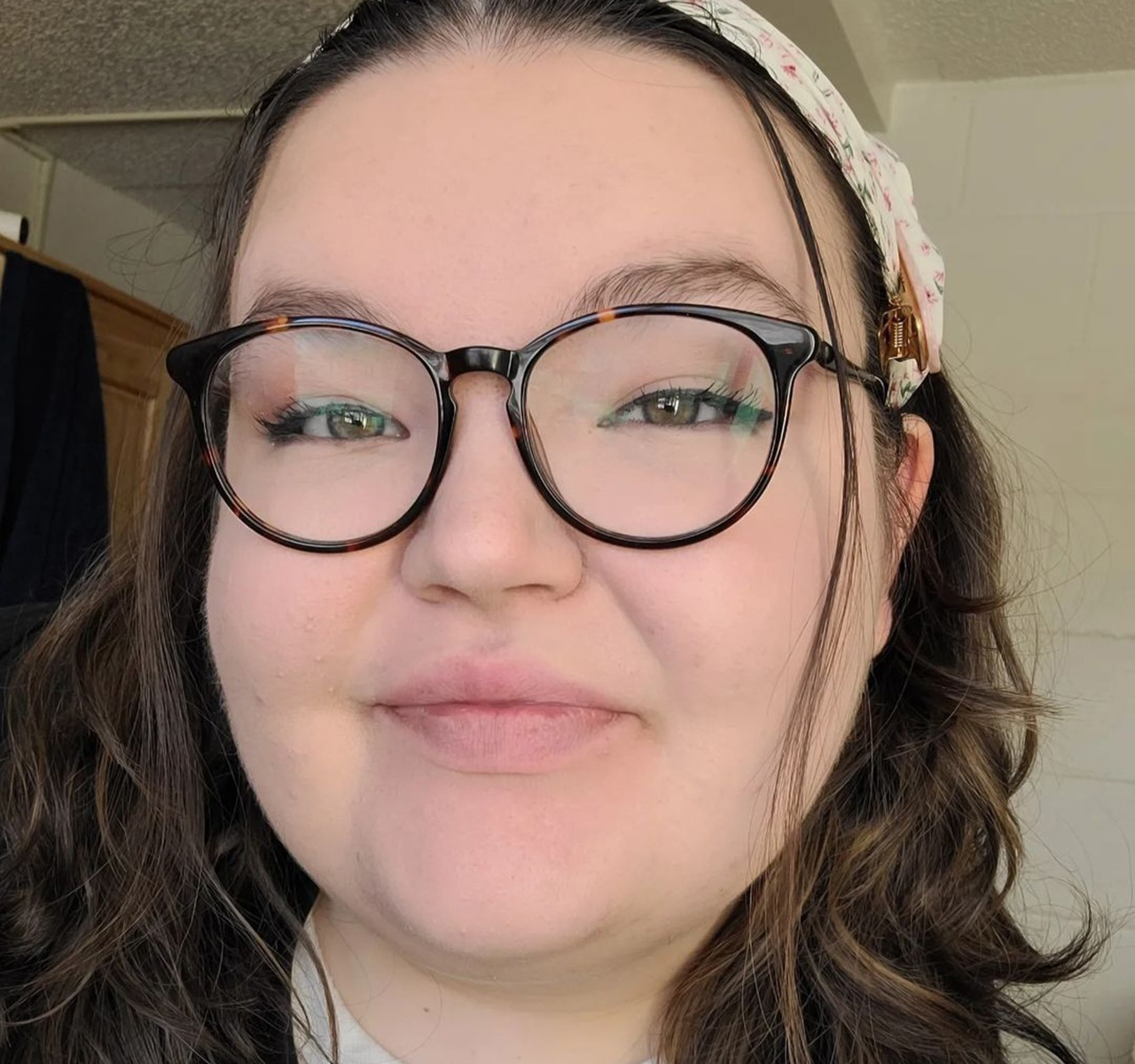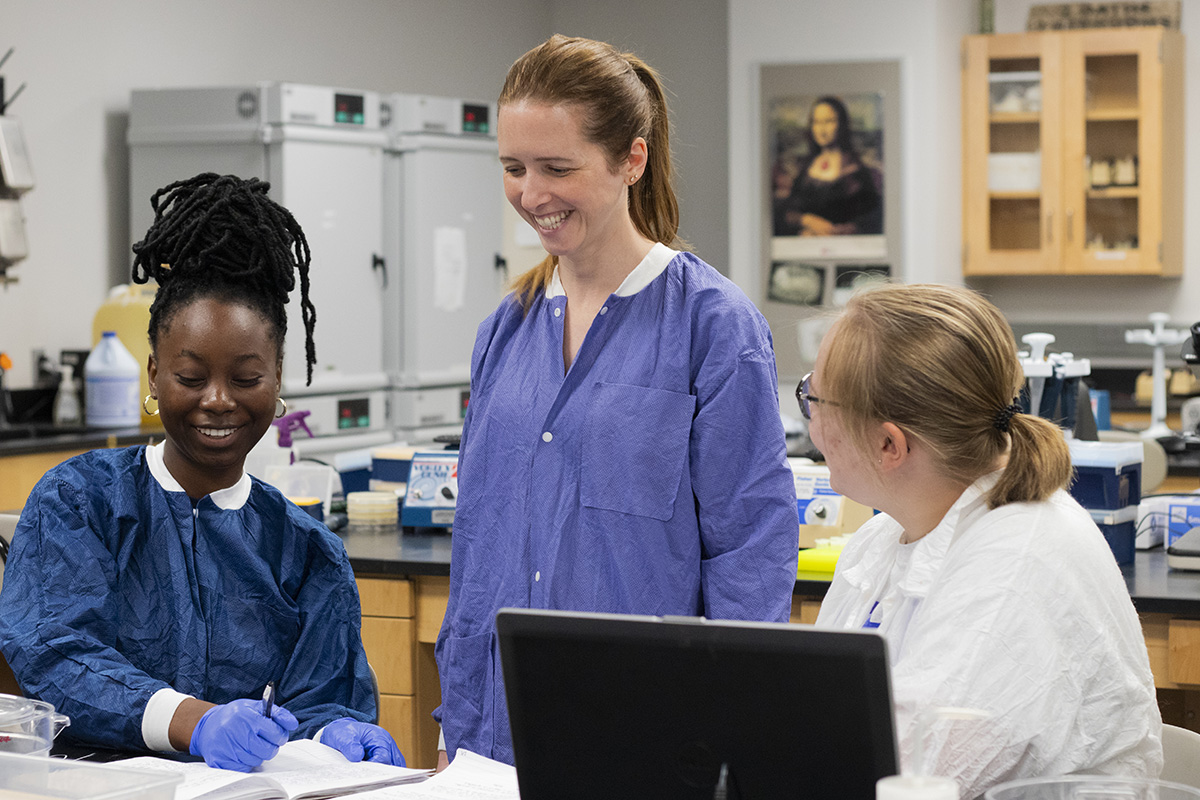Experiential Learning
Experiential Learning (EXPL) is a core curriculum requirement at Luther College. Through EXPL, you will apply your learning in a context beyond the traditional classroom setting and reflect on that experience to inform your personal and vocational discernment.

The EXPL requirement can be fulfilled via two distinct pathways.
- Course designated as EXPL
You can register for an intentionally designed 4-credit course designated with the EXPL tag. If your program requires a practicum or clinical experience, check with a faculty member or in Norse Hub to see if that course is designated EXPL. Only courses designated with the EXPL tag can fulfill the EXPL core curriculum requirement. Registration for these courses is program-specific; consult with your academic advisor. In addition, there are a select number of study away programs that will fulfill the experiential learning requirement. Check out the Center for Global Learning web page to learn more about study away options. Follow all policies and procedures set by the Center for Global Learning to apply, prepare, and complete a study away program that will fulfill your experiential learning requirement. - An experiential learning experience, with a co-enrolled Reflection Seminar
You can complete any of the experiential learning experiences listed below. Students will need to register for at least two credits of the experience as well as the one-credit EXPL Reflection Seminar to fulfill the EXPL requirement. The experience and the reflection seminar must be completed at the same time and during one academic term.- Internship A short-term work experience offered by companies and other organizations for students to get entry-level exposure to a particular industry or field. Internships can be paid or unpaid. The organization will provide a supervisor for your work.
- Fieldwork Practical work conducted by a researcher in the natural environment, rather than in a laboratory or office. A Luther faculty or staff member or someone from an outside organization will supervise your work.
- Job shadow On-the-job observation as a part of career development. The organization will provide you with a supervisor.
- Research project An academic undertaking to answer a research question. These projects can be proposed by a student or by a faculty member. A faculty or staff member will either work directly with you as a supervisor, or they will mentor you as you form your own independent project. You may also participate in research for another institution or organization. In that case that organization will supervise your work.
- Creative project A planned activity or work that aims to create a product. These projects are flexible, original, meaningful, and personal. A faculty or staff member will either work directly with you as a supervisor, or they will mentor you as you form your own independent project.
- Community-engaged project A project that involves the community in its development and prioritizes the community’s needs and agency. These projects generally involve people who will be impacted by the project’s outcomes as equal partners and create benefits for the community, partners, and students. A faculty or staff member will either work directly with you as a supervisor, or they will mentor you as you form your own independent project.
- Work-study project A Luther work-study position where the work-study supervisor and the student have identified one of two things: 1) a project that will enhance the work of the department, or 2) skills/competencies from the job description that the student can work to enhance through mentorship, professional development, continued education/training, or other identified avenues.
Experiential learning activities must include all of the following:
- Complete a minimum of 72 hours of student-directed work outside the typical faculty-led classroom model, over the course of one academic term or summer. Courses designated as EXPL will include 72 hours of work.
- Demonstrate active and independent engagement with a community, industry, or body of research beyond the traditional classroom setting.
- Complete a reflection process; it may be embedded in a proposed EXPL course or completed through the EXPL 300 Reflection Seminar.
- Deliver a community presentation of experience outcome(s) through a student- or course-designated medium (e.g., Learning at Luther Showcase roundtable or poster session, community showcase, community production, regional conference, etc.). These presentations will be coordinated by the course instructor.
- Meet with your academic advisor
- Discuss what kind of EXPL opportunities you might be interested in or will align with your program of study.
- If EXPL courses are available in your program, discuss if and when you might take them. (If you plan to take an EXPL-designated course, you will register for that class as you would any regular class, and you can disregard the rest of this checklist.)
- Complete the Experiential Learning Prep course
- Register for the Experiential Learning Prep course (in KATIE).
- Have no idea how to go about getting or preparing for an experience? This prep course will walk you through how to get started.
- Already have an experience lined up? This prep course will help prepare you for a professional experience.
- Not sure what kind of experience you want? This prep course will help explain and give examples of the different types of experiences available.
- Find an experience.
- Work with the Career Center, faculty, staff, or personal contacts to find an experience or create a project.
- Create your proposal and submit it through Handshake for approval.
- Meet with your EXPL direct supervisor or faculty/staff mentor to create a proposal. Use the EXPL Student Proposal Template to assist you with planning.
- Use these Handshake instructions to enter the details of your EXPL proposal.
- Handshake will route the proposal details to your direct supervisor or faculty/staff mentor, academic advisor, and designated school official (for international students) for approval.
- Register for EXPL 392 and EXPL 300 in Norse Hub.
- After your proposal has been approved in Handshake, you can register for EXPL 392 Experiential Learning Experience and EXPL 300 Reflection Seminar through Norse Hub.
- Register for at least 2 credits of EXPL 392 Experiential Learning Experience (minimum of 72 contact hours) to fulfill the EXPL requirement.
- Register for the EXPL 300 Reflection Seminar for the same term as your experience.
- Complete your experience and reflection seminar.
Working with Dr. Pedlar introduced me to the idea of science as a dynamic process of discovery, rather than a static collection of facts. His mentorship helped me cultivate critical thinking, allowing me to embrace the uncertainties of the natural world while building on existing knowledge to ask new questions and develop the tools needed to answer them.
Alain Nishimwe ’22Doctoral student, biomedical engineering, University of Minnesota
Resources and forms
Read More

Experiential learning is all about getting hands-on and actually applying what you learn in class to real-life situations.
Career Center
Sarah Crose
Director of the Career Center
Dahl Centennial Union 205K
700 College Drive
Decorah, Iowa 52101
Phone: 563-387-1477